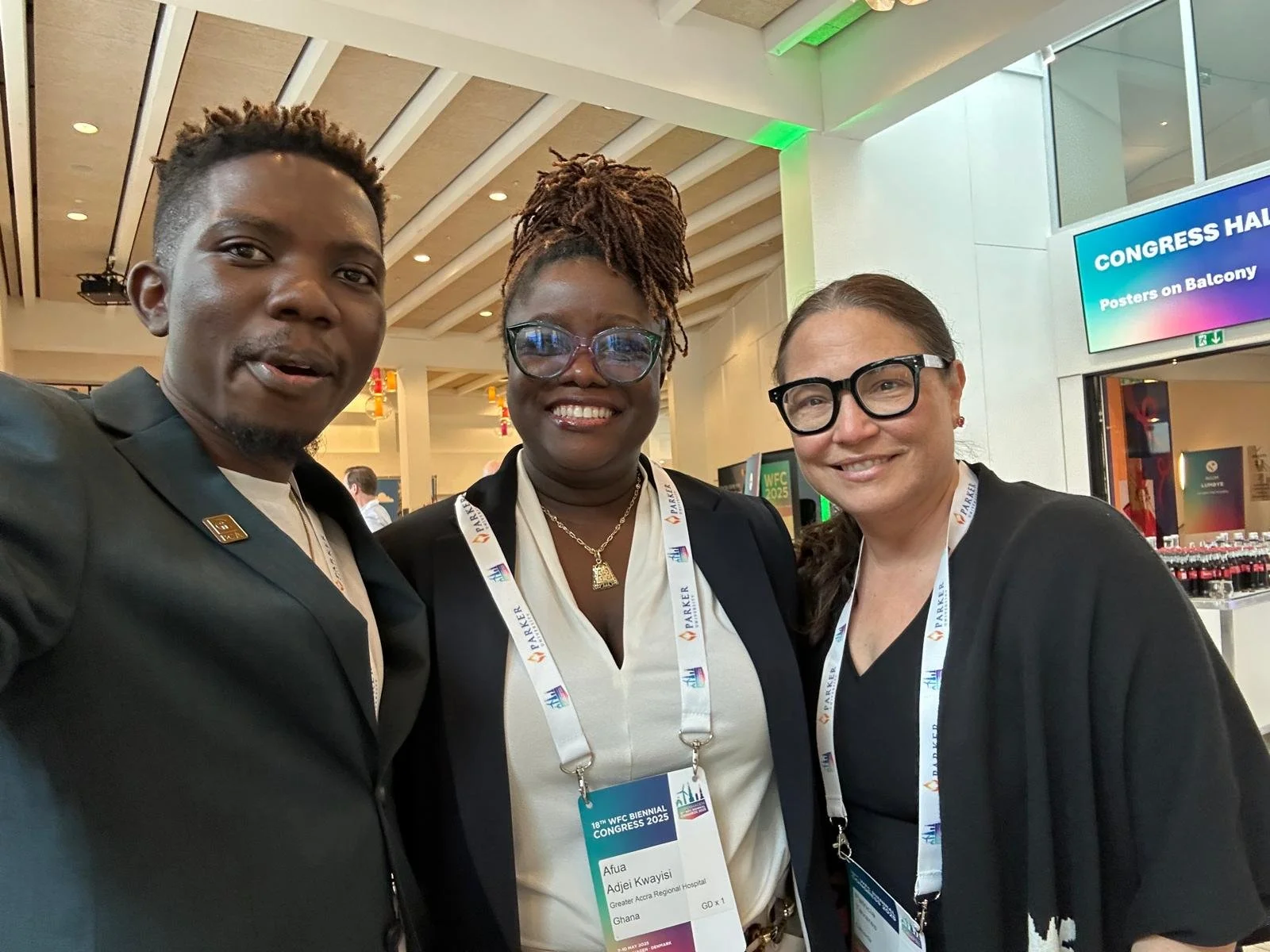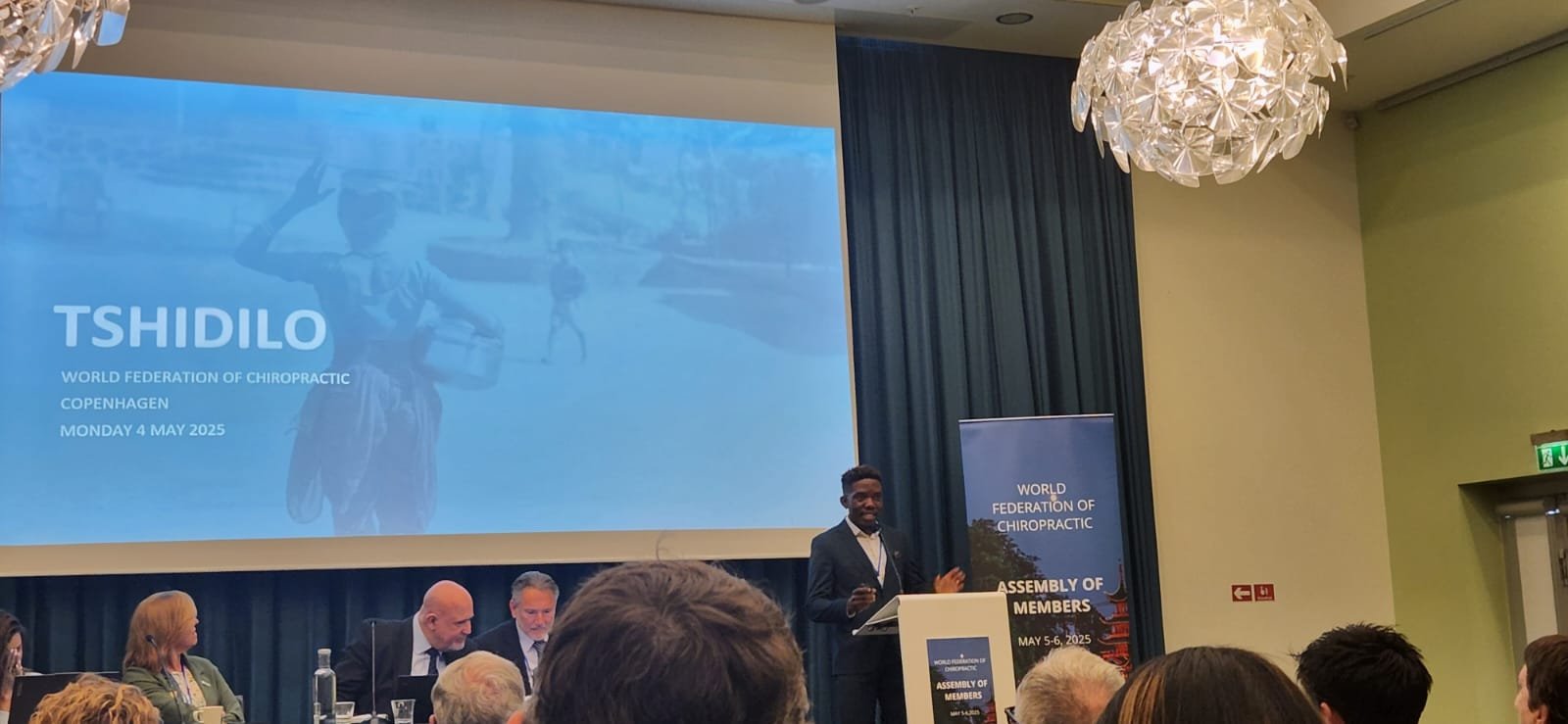From Clinical Insights to Future Directions: World Spine Care's Contributions to the 2025 World Chiropractic Congress
World Spine Care (WSC) clinicians and members of its research team participated in plenary sessions, the research platform, poster presentations, and on panels throughout the World Federation of Chiropractic’s 18th Biennial Congress in Copenhagen, May 7 to 10, 2025
Dr. Scott Haldeman, WSC’s President, was featured as a keynote speaker. He reflected on the chiropractic profession’s history, highlighting key milestones along the way, and gave his opinions on where the profession is headed on the heels of evidence-based research in musculoskeletal care. He commented that chiropractic researchers have played a key role in the understanding and management of spine-related disorders globally and have been asked to play roles in global organizations such as the WHO, the WRA (World Rehabilitation Alliance), SPINE20, and others. Furthermore, Dr. Haldeman noted that the future for chiropractors will include being part of inter- and multidisciplinary care teams, conducting research on whether the relief of spinal pain and disability impacts non-MSK symptoms and disease, and incorporating AI into population-based research. A standing ovation was well-deserved after his inspiring presentation.
Dr. Scott Haldeman (right) stands with recipients of the Scott Haldeman Award for Outstanding Research.
World Spine Care was also well represented by Dr. Steven Passmore, who presented a poster entitled Health Services Utilization of Chiropractic Services in the Cross Lake Nursing Station, a World Spine Care Clinic, on the lands of the Pimicikamak People in northern Manitoba, Canada: Baseline patient characteristics since clinic inception. The poster outlined achievements of the implementation study currently underway in Cross Lake, Manitoba, a project whose team includes Dr. André Bussières, Dr. Jenn Ward, Dr. Patricia Tavares, Dr. Deborah Kopansky-Giles, Dr. Jean Moss, Dr. Scott Haldeman, Muriel Scott, and various leaders of the Cross Lake community.
Drs. Mufudzi Chihambakwe (Clinic Coordinator, Botswana), Afua Adjei-Kwayisi (Clinic Supervisor, Ghana), and Patricia Tavares (Director of Clinics, World Spine Care) met up at the World Federation of Chiropractic Bi-annual Congress in Copenhagen this past May.
Dr. Jennifer Ward presented the results from a paper published earlier this year entitled The prevalence and burden of musculoskeletal disorders amongst Indigenous people in Pimicikamak, northern Manitoba, Canada: A community health survey. This survey found that spine symptoms were highly prevalent and significantly impacted activities of daily living. Nearly half of the respondents felt that they could benefit from care provided by allied health providers.
Dr. Kopansky-Giles, WSC board member and contributor to the Global Spine Care Initiative, gave a keynote presentation about her many years of work in integrating chiropractic into primary health teams.
Dr. Rebecca Nekstad presented her project entitled Expanding the Holistic Lens: World Spine Care Chiropractic Volunteers’ Experiences Delivering Musculoskeletal Care in Botswana, a qualitative exploration of past volunteers in our clinics.
The ever-engaging speaker, Dr. Mufudzi Chihambakwe, World Spine Care clinic coordinator in Botswana, presented Tshidilo: A step towards understanding spine care in Botswana. He highlighted the beautiful film produced by Jane Spitz in support of spine care in Botswana.
Dr. Mufudzi Chihambakwe delivers a presentation on Tshidilo, the documentary film about the World Spine Care clinics in Botswana.
Dr. Katie De Luca’s platform presentation was entitled Association of cognitive impairment and spinal pain in the older adult population in the United States: A secondary analysis of cross-sectional data from the 1999-2000 and 2001-2002 National Health and Nutrition Examination Survey. It featured highlights of the paper that received an honorable mention at this year’s Congress as part of the NCMIC Research Awards. This study, soon to be published, sets the stage for a future longitudinal study on the directionality of the relationship between cognitive impairment and spinal pain with implications for vulnerable populations. Team members on this paper included Dr. Haiou Yang, Dr. Scott Haldeman, Dr. Eric Hurwitz, Dr. Patricia Tavares, Dr. Bart Green, and Hannah Dale.
In addition to the important presentations given, team members also led various workshops at the Congress. One such workshop, Chiropractors as Part of the Rehabilitation Revolution, included Dr. Afua Adjei-Kwayisi and Dr. Katie De Luca. Dr. Adjei-Kwayisi was the past Clinic Supervisor and ran the WSC clinic in Accra, Ghana.
In all, this was an excellent Congress at which World Spine Care members, volunteers, and leaders provided insightful presentations and contributions throughout on work that is positively impacting and furthering the research into and treatment of spine-related pain and related disorders globally for those who need it the most.
Thanks to the organizers of the Congress and to Secretary General Dr. Richard Brown, board member and vice-president of World Spine Care.







